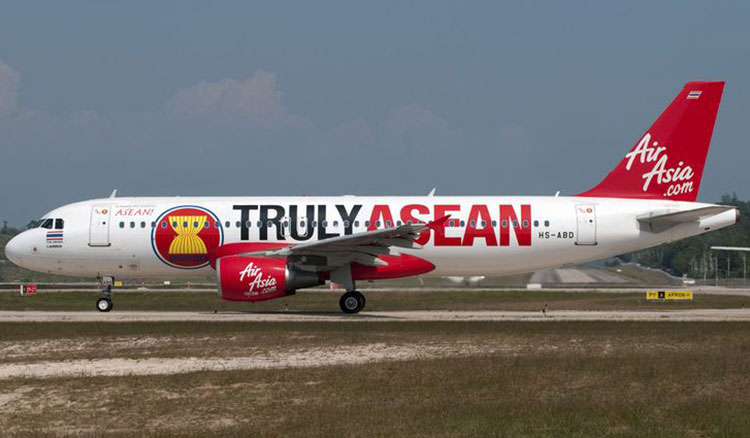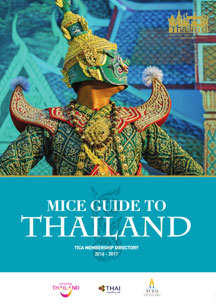
ASEAN
INFRASTRUCTURE PLANS TO TURN THAILAND INTO AEC LOGISTICS HUB
The eight-year plan to develop the country's transportation infrastructure at a cost of Bt2.4 trillion will turn Thailand into a key logistics hub in the Asean Economic Community (AEC)
by the time the projects are completed in 2022, said Roengsak Tongsom, director of the Rail Project Development Office.
The goal of the strategy to develop the logistics system and integrate all transportation platforms - rail, air, road and water - stretches beyond the Kingdom's borders, as some of the
projects form part of a plan to link the country's transportation system with those of neighbouring countries, he said.
The first priority is to develop 10 rail routes in Bangkok and its suburbs, worth Bt700 billion in total, by 2019.
These routes are: 42.8 kilometres of the rapid mass-transit system's Red Line from Thammasat University to Hua Lamphong; the 54-km Pink Line from Salaya to Hua Mark; the 50.3-km
Airport Rail Link extension; 60km of the Dark Green Line from Lam Luk Ka to Bang Pu; 14.5km of the Green Line from the National Stadium to Bang Wa; the 47-km Bang Sue-Tha
Phra-Bangkae route; 42.8km of the Purple Line from Bang Yai to Rat Burana; the 32.5-km Orange line, from Charan Sanitwong-Rajdumene-Thailand Cultural Centre-Min Buri; the 36-km
Khae Rai-Min Buri line; and 30.4km of Yellow Line from Lat Phrao to Samrong.
"These lines will form part of plans to support the inner-city transportation system and city expansion from the heart of Bangkok into the suburbs. They will reduce crowding in the
central business districts," said Roengsak.

The next stage of the infrastructure investment plan is to develop the country's wider transportation system and link Thailand and neighbouring countries by rail - via a double-track
system, in particular.
The priorities in this respect are construction of a Bt392.57-billion Nong Khai-Nakhon Ratchasima-Saraburi-Laem Chabang-Map Ta Phut railway, and a Bt348.89-billion Chiang Khong-Den
Chai-Baan Pahchi line - both using a double-track system.
Investment in these crucial lines will commence in fiscal year 2015, which runs from this coming October, with completion targeted for 2021.
The double-track routes will drive the goal of Thailand becoming a key strategic and logistics gateway to the AEC, which is set to come into effect next year, said the official.
The Nong Khai-Nakhon Ratchasima-Saraburi-Laem Chabang-Map Ta Phut route will support the logistics system from Map Ta Phut to the Lao capital, Vientiane, while the Chiang
Khong-Den Chai-Baan Pahchi route will support the logistics system to Myanmar and southern China.
The infrastructure investment planned for greater Bangkok will transform the capital from an overcrowded city by expanding residential areas beyond the central business districts
and into the suburbs, said Property Perfect CEO Chainid Adhyanasakul.
Once the infrastructure projects get under way next year, the listed residential developer will expand its investment in Bangkok's peripheral provinces, in line with the mass-transit
route expansion, he said.
Another listed developer, Sansiri, is also planning provincial expansion due to the state's revived infrastructure spending plans.
"We suspended our investment in the provinces when the infrastructure investment programme worth Bt2 trillion was suspended. If the new government expands the investment to
develop the country's infrastructure in the provinces, we will be ready to expand our investment into new provinces [for Sansiri] that are located close to new infrastructure routes,"
said the company's president, Srettha Thavisin.




